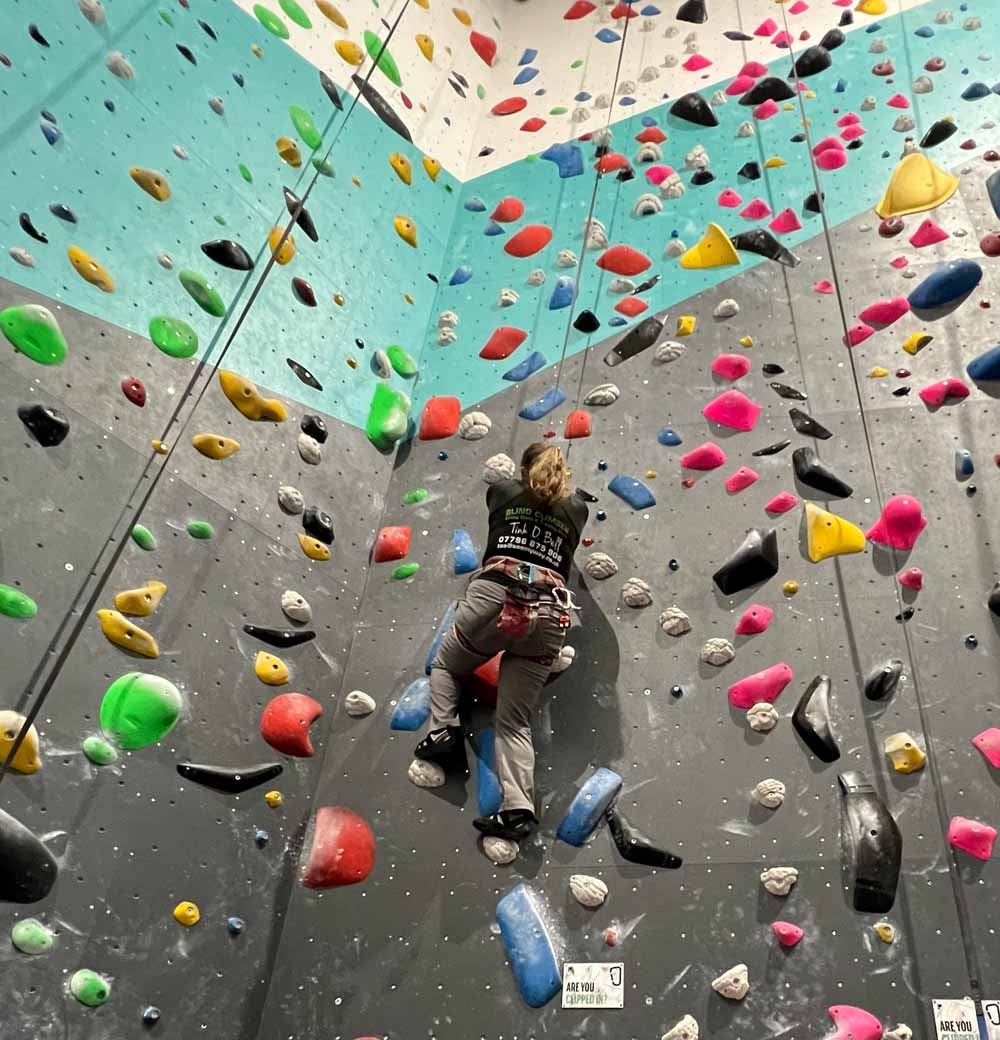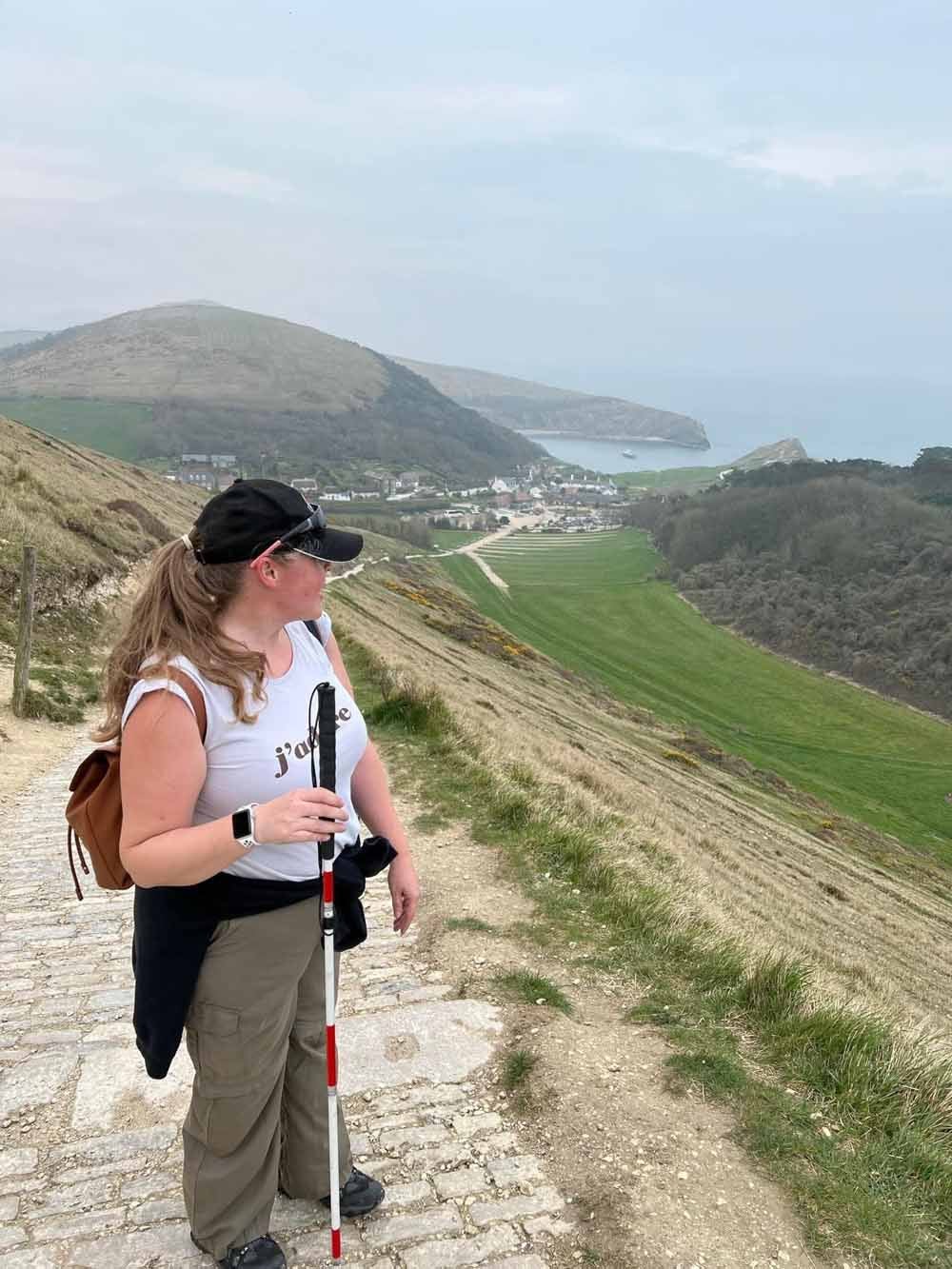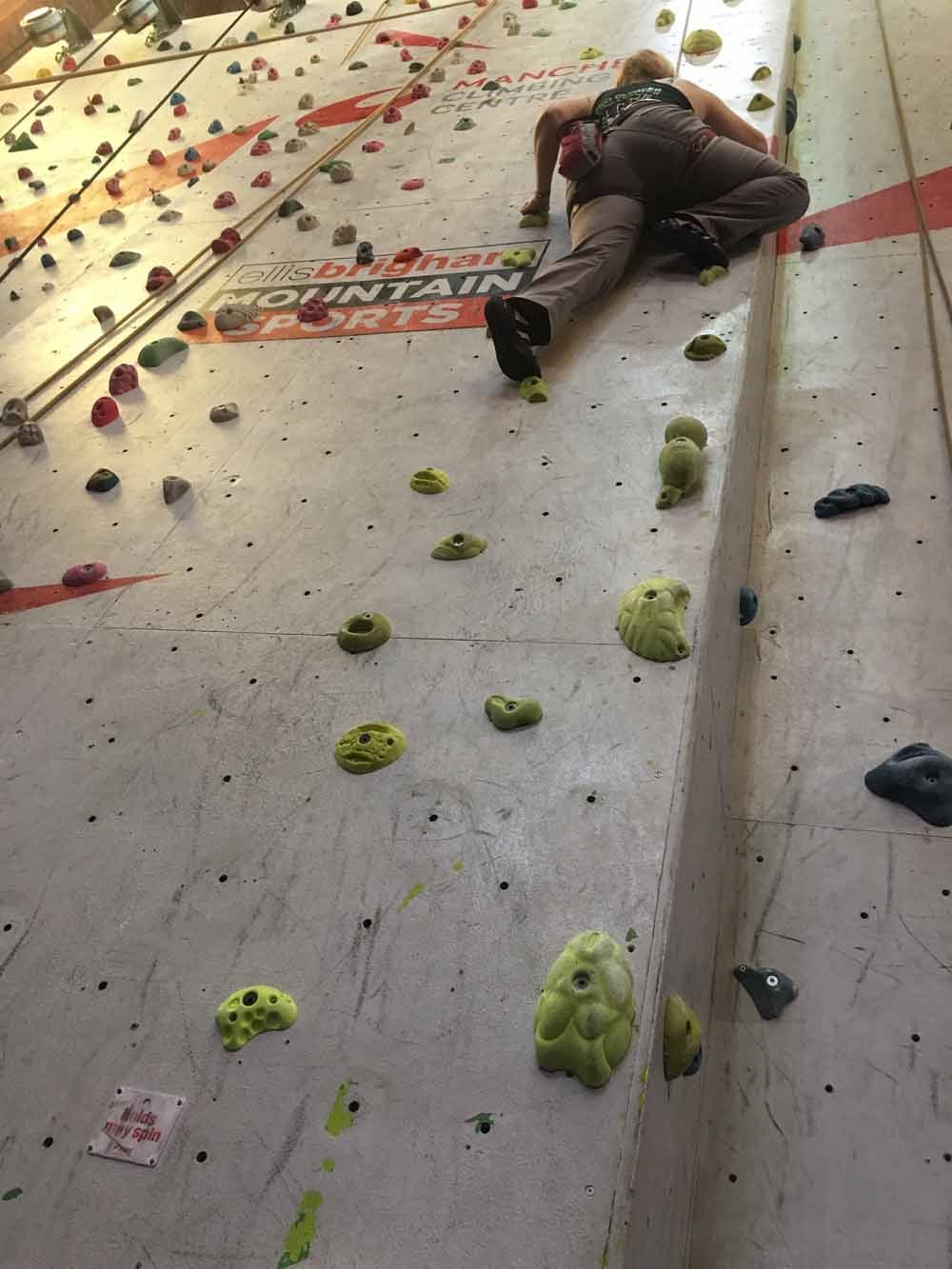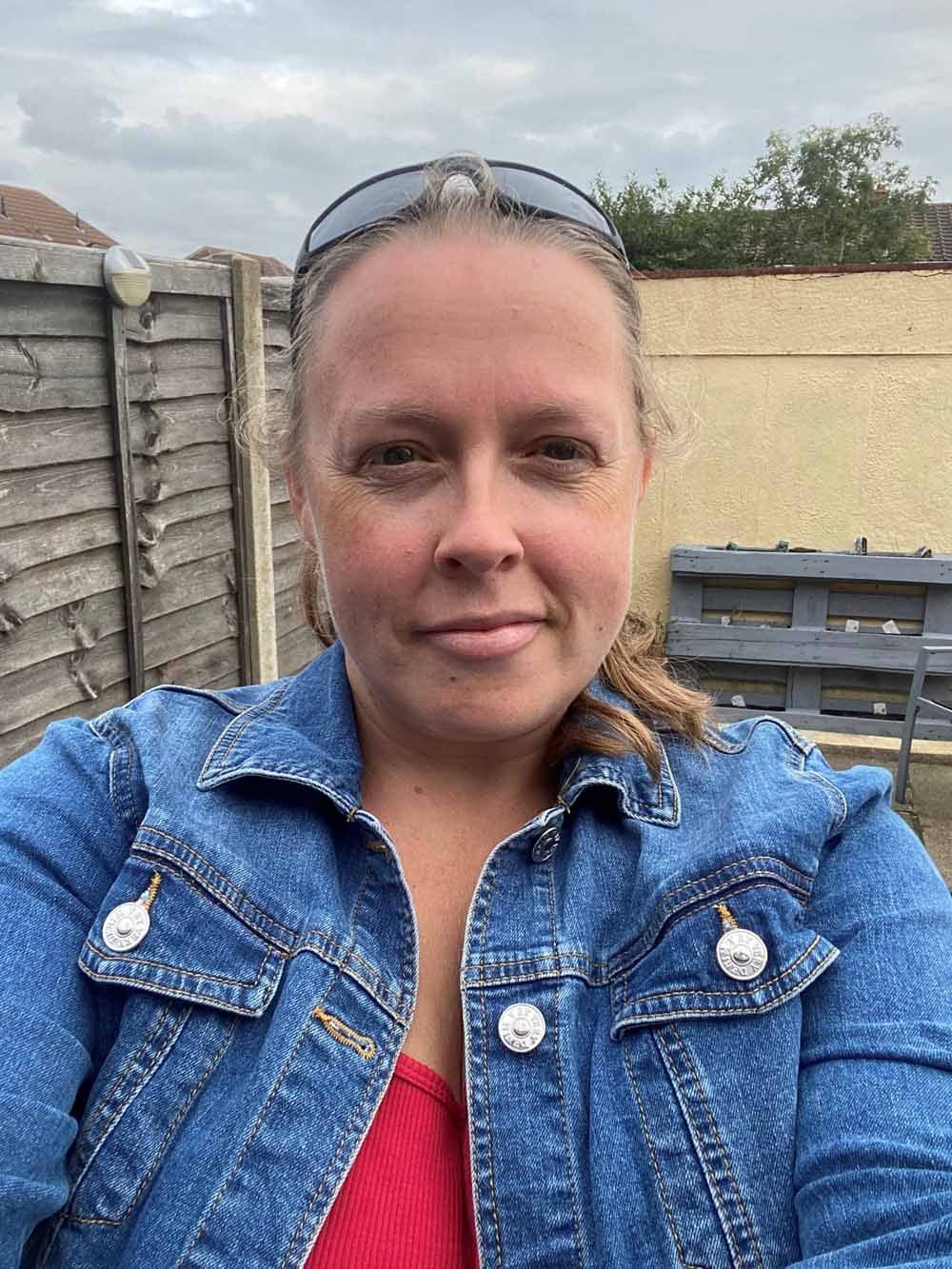‘Eyes in the back of my head!’ Meet the blind woman fearlessly scaling walls as high as London’s 180m Gherkin
Hampshire Guide Dogs volunteer Theresa Osborne-Bell, 41, climbs walls with the agility of a squirrel despite being blind

Your support helps us to tell the story
From reproductive rights to climate change to Big Tech, The Independent is on the ground when the story is developing. Whether it's investigating the financials of Elon Musk's pro-Trump PAC or producing our latest documentary, 'The A Word', which shines a light on the American women fighting for reproductive rights, we know how important it is to parse out the facts from the messaging.
At such a critical moment in US history, we need reporters on the ground. Your donation allows us to keep sending journalists to speak to both sides of the story.
The Independent is trusted by Americans across the entire political spectrum. And unlike many other quality news outlets, we choose not to lock Americans out of our reporting and analysis with paywalls. We believe quality journalism should be available to everyone, paid for by those who can afford it.
Your support makes all the difference.A blind woman who has fearlessly scaled walls as high as London’s famous 180m Gherkin skyscraper is planning to take her sporting prowess to the next level by climbing in international competitions for Great Britain.
Theresa Osborne-Bell, 41, cannot see her feet when she stands up, yet scuttles up sheer climbing walls with the agility and certainty of a squirrel – loving every minute of the freedom the sport gives her.
With characteristic confidence, the single mother-of-two, of Fareham, Hampshire, said: “A lot of climbing for me is about taking a leap of faith.”

She added: “Sometimes I make it, sometimes I don’t.
“I can’t see the holds on the climbing wall. But I have caught the climbing bug and hope to represent Great Britain internationally.”
Diagnosed with visual issues at birth, Theresa – who is no longer with the father of her daughter, aged 16, and son, aged 12 – was registered blind, or severely sight impaired, in 2008. She also has severe hearing loss, which doctors suspect to be related to her sight issues through an as yet undiagnosed genetic condition.
Covid has put back my training a lot, but I’m getting back into it properly now.
A volunteer for the Guide Dogs charity, her sight issues were first spotted shortly after her birth, when she was diagnosed with nystagmus, or involuntary eye movement, and severe short sightedness.
Told she would be blind by her teens, her parents ensured she was taught to touch type in primary school in preparation for a life with no sight.
At just 13, Theresa was diagnosed with her first inoperable cataract in her left eye, followed by another in her right several years later.

But, forewarned of what lay ahead, she remained independent and felt she could “see quite well” until she became a mother.
Despite changing nappies, cooking nutritious meals and looking after her daughter’s every need, she said: “Shortly after having her I started bumping into things.
“I went to see my consultant and was diagnosed with a rare condition called Leber congenital amaurosis, an eye disorder that impacts the retina, when I was 27.”

She added: “I’ve always worn glasses, but up until that point wasn’t using any mobility aids. I was fiercely independent and did everything myself, but that day, everything changed.
“My consultant explained I’d need to be registered as severely sight impaired or blind. I was sitting there thinking, ‘But I can see. What are you talking about?’”
Sadly, her sight has continued to degenerate and she now has just four per cent of central vision and severely restricted peripheral vision.
I have caught the climbing bug and hope to represent Great Britain internationally.
Refusing to be beaten, Theresa still walks between three and five miles a day around her local area, cooks meals from scratch and does everything she can to say self sufficient.
She said: “I struggle to see much at all, but my kids still say to me, ‘Are you sure you’re blind, Mum?’.
“I have eyes in the back of my head! I always know what they are doing. Sight or no sight, that’s a mum thing.”

And she was delighted in 2009 to be given guide dog Vicky, a flat-coated retriever, before her retirement in 2015 when her new guide dog Fizz helped her navigate her local area until she was also retired last November.
And, in 2013, Theresa, who is waiting to be allocated a new dog, added another positive activity to her life when a friend suggested she join him at a local climbing wall.
She said: “I thought, ‘Well, I can no longer see my feet when I stand up, so the height won’t be an issue!’”
I’ve shredded my hands, lost skin on my fingers. I’ll occasionally hit my knee on a hold and recently had a soft tissue injury to my shoulder after sweeping my arm out.
She added: “I went and did a taster session. There was someone on the ground talking me through it. Even though I couldn’t see the holds when I was on the wall, I just fell in love with climbing. ”
Theresa now climbs at Calshot climbing wall in Hampshire twice a month, alternating her weekly practice with another wall in nearby Southampton.
Facing the added disability of hearing loss, she has found a way to still climb safely, saying: “My hearing aids are Bluetooth.”

She added: “I have a friend on the ground who holds my rope and talks me through where the holds are via his phone.
“If they are within arm’s reach then I sweep my arm across trying to find them, If not, well then it’s just a leap of faith.”
Theresa is now involved with the community of paraclimbers – climbers with disabilities – and since 2016 has taken part in several competitions on walls in Manchester, Edinburgh, Newcastle and London, although she is yet to win any.

She explained: “When I enter competitions I climb against other climbers with visual impairment and they grade us on the severity of the impairment.
“The tallest walls I’ve climbed are in Edinburgh at 28m but, during a charity climb in 2016, I climbed the equivalent height of the Gherkin building as a fundraiser for charity.”
Growing used to ‘sweeping’ her arms across the wall to look for holds, Theresa is no stranger to injuries on the wall.
My aim is to represent the UK abroad in the world series, climbing in Austria and the USA.
She said: “I’ve shredded my hands, lost skin on my fingers. I’ll occasionally hit my knee on a hold and recently had a soft tissue injury to my shoulder after sweeping my arm out.
“I hadn’t realised I was next to the other wall coming out at 90 degrees!
“I’m very fair so it doesn’t take much to turn me purple. But, on the whole, I’ve been very safe.”

Although Theresa s not confident enough to tackle any outdoor climbs, she has high hopes for scaling the ranks of British paraclimbing.
She said: “Covid has put back my training a lot, but I’m getting back into it properly now.
“My aim is to represent the UK abroad in the world series, climbing in Austria and the USA.”
- Find out more about living with sight loss and eye conditions including cataracts through Guide Dogs at guidedogs.org.uk/cataracts or visit guidedogs.org.uk/eyeconditions